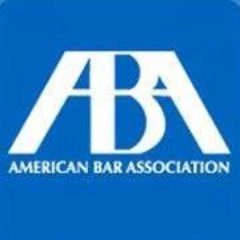Rachel Cannon is currently a partner with the Chicago law firm Dentons; her previous experience included time in the US Attorney’s Office in Chicago where according to her Denton’s profile, she: “served as an assistant United States attorney (AUSA) in Chicago, where she supervised the bankruptcy fraud program and worked in the Securities and Commodities Fraud Section.”
Currently she boasts of helping Igor Oystacher and 3 Red Trading in her current role at Denton’s.
“Igor B. Oystacher and 3Red Trading: Successfully prevented the CFTC from enjoining a Chicago trader and his trading firm in a ‘spoofing’ and market manipulation case.” Cannon noted in her experience section on the site.
As an ongoing investigation by The Industry Spread has noted, Oystacher and 3 Red Trading have engaged in systemic spoofing.
Oystacher was sanctioned civilly by six regulators on multiple continents but has never been indicted, let alone convicted of any crimes, though spoofing is a criminal act.
But as recently unearthed documents have shown, Oystacher was investigated by members of the Federal Bureau of Investigation and the US Attorney’s Office where Cannon worked in the Securities and Commodities Fraud Section of the US Attorney’s Office.
In an interview conducted before these documents were unearthed, Cannon acknowledge working on the securities section at the US Attorney’s Office but denied that the US Attorney’s Office investigated Oystacher.
“I know of no investigation (of Oystacher),” Cannon said.
But that statement now strains credulity.
In recently unearthed documents, Edwin Johnson, the former Chief Risk Officer and part owner of 3 Red Trading, turned whistle-blower was forced to detail his meetings with law enforcement, regulators and media.
While Cannon herself was not listed in any meetings, Johnson met with members of the FBI in some meetings and in other meetings with both FBI agents and US Attorney’s Office prosecutors.
Cannon would not expand on her earlier statement saying: “you have my previous statement,” before hanging up in a follow up interview just prior to publication.
How Federal Crimes are Prosecuted in the US
Federal crimes are prosecuted by the US Department of Justice, and its two main agencies, the FBI and the US Attorney’s Office. The FBI investigates federal crimes while the US Attorney’s Office prosecutes them.
That Johnson not only met with FBI agents separately but also in other meetings met with FBI agents and US Attorneys suggests the investigation had proceeded far enough for prosecutors to get actively involved.
Cannon’s role in this potential prosecution is unknown and since she did not attend any of the meetings her role may have been limited, but as she acknowledged, she was in the division investigating commodities and securities fraud at the time Oystacher was being investigated for commodities and securities fraud by the FBI and US Attorney’s Office.
A Glaring Conflict of Interest
This reporter asked Cannon, “so, didn’t you investigate Igor (Oystacher) before you defended him?”
That question carries with it great consequences for Cannon’s legal ethics. If her division investigated Oystacher and then she moved over into the private sector and defended him against her old colleagues that would create a blatant conflict which as an attorney she had to avoid.
In other words, by legal ethics, Cannon was required to not represent Oystacher if she was aware of his federal investigation.
Indeed, if she was hired strictly to lobby her old colleagues to drop their case against Oystacher, that would be why legal ethics required her to recuse herself.
 A Bar Investigation
A Bar Investigation
In the US, a lawyer can only practice legally with their bar card. The American Bar Association, through its state affiliates, issues bar cards to lawyers. In order to get a bar card, a lawyer must pass the bar exam and then be in good standing, free of ethical lapses, along with paying yearly fees and other requirements.
The ARDC does not comment on any investigation which has not been completed, let alone not even formally submitted, however this reporter will also file a formal complaint against Cannon with the ARDC.








